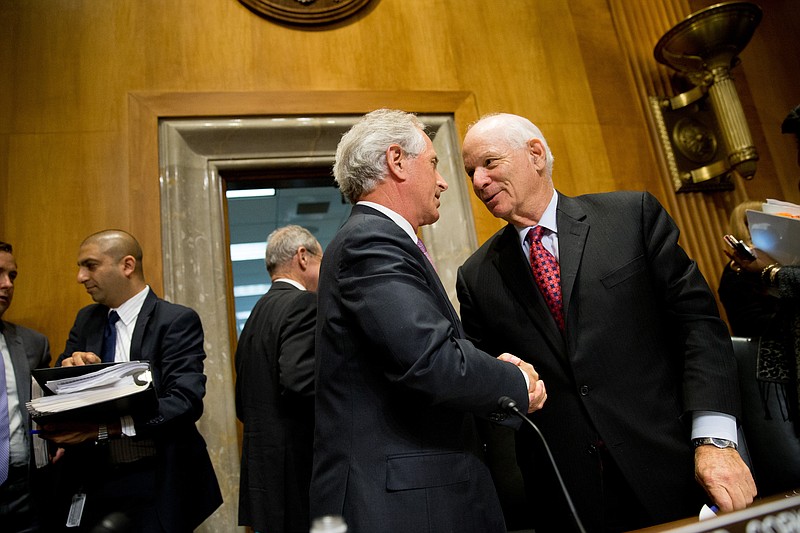The United States Senate Foreign Relations Committee on Tuesday placed the first hurdle in the way of the Obama administration's original desire to completely skirt Congress in any nuclear agreement it makes with Iran.
The legislation, which will allow Congress to inspect and potentially reject the deal, now goes to the full Senate, where it could come to a vote as soon as next week.
But the president, apparently feeling antsy over the number of his fellow Democrats who have expressed a belief that Congress should play a role in the deal and over developments like Monday's announcement that the Russians already have lifted a ban on missile system deliveries to Iran, signaled he might sign the bill if it doesn't change much.
Between the committee and the president, though, is where it gets dicey. Some Republicans may not accept the watered-down legislation that left the committee and will insist on adding amendments. Others may feel the concessions that were made were necessary to even get to see the bill. Meanwhile, some Democrats have been in lockstep with the administration's original recalcitrant position of not wanting Congress to review the agreement. Others may feel the changes in the legislation have made it easier for them to swallow.
Though no one is saying it, the announcement by Russia also may have moved the needle for Obama. After all, it is one of the p5+1 countries that reached the framework of the agreement on Iran's nuclear program late last month that wasn't scheduled to conclude until June 30.
Read more
Congress must have Iran deal oversight
"I want us to have, by the way, a successfully negotiated agreement with Iran," U.S. Sen. Bob Corker, R-Tenn., said in an interview Tuesday on MSNBC's "Morning Joe," "but obviously, you know, our partner -- quote, quote, quote -- Russia, certainly is making this very, very difficult, as they have in other parts of the world."
The legislation going forward slices in half the original 60-day review period of the agreement by Congress and, unfortunately, eliminates a requirement that the U.S. certify that Iran is not sponsoring terrorism against Americans. Neither, sadly, does it require Iran to recognize the right of Israel to exist.
However, it does require periodic reports on Iran's human rights record and does give Corker what he said he wanted from the beginning -- the ability to reject a final nuclear deal.
The legislation's passage in the Senate -- and eventually in the House -- is not in doubt. But what Corker and others want is legislation that can overcome a veto from Obama, still allow lawmakers to reject a final deal and be, as the former Chattanooga mayor said Tuesday, "absolutely intact, full of integrity."
Republicans understandably may want to get back with amendments some of what was given away Tuesday, but the ability to comb through the details of the deal -- and ultimately sign off or reject it -- should be enough of a carrot to keep the bipartisan bill together.
